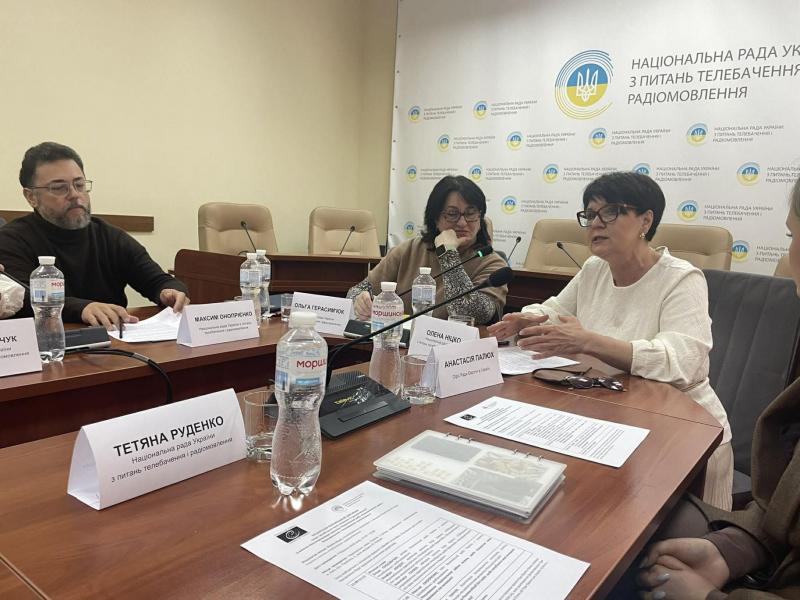Corruption and international investment arbitration

Marta Tsvengrosh, Associate, ILF Integrites
Corruption is one of the greatest evils of modern world, which penetrates in almost all aspects of our life. Despite its prohibition on domestic and international level, a large number of business transactions are conducted through corruption. Unfortunately, investment contracts are not exceptional.
In a large survey conducted in 2008 by Transparency International, almost a half (45 per cent) of the multinational companies from OECD countries that were interviewed reported that personal and familiar relationships rather than competitive bidding are frequently used to win public contracts in the non-OECD countries where they operate. In a different study conducted by Transparency International more than one third of international business managers estimated that corruption increases international project costs by more than 10 per cent, while one-sixth believed that corruption inflates costs by more than a quarter [1].
Ukraine scores 2.3 on a scale from 10 (highly clean) to 0 (highly corrupt) in the 2011 Corruption Perceptions Index [2], which indicates widespread perceptions of corruption.
This sad statistics speaks louder than words. We can only guess the actual percentage of investment contracts tainted with corruption. International investment disputes involving corruption are likely to be appearing frequently.
Since the beginning of 90s a number of international conventions condemning bribery have been enacted, the UN Anti-Corruption Convention, and the OECD Convention on Combating Bribery of Foreign Public Officials in International Business Transactions being among them. According to Article 34 of the UN Anti-Corruption Convention (ratified by Ukraine in 2009), “State Parties may consider corruption a relevant factor in legal proceedings to annul or rescind a contract, withdraw a concession or other similar instrument or take any other remedial action.” On the basis of this Article a respondent state may use corruption as a defense to resist investor’s claims about a BIT breach [3, 207].
This article will analyze the prospects of the investor’s case in ICSID arbitration if the investment contract has been tainted with corruption.
When talking about the consequences of corruption in the context of international investment arbitration, the main question which arises is whether corruption affects jurisdiction or it is the question of merits. The tribunal may look at corruption as an issue relating to jurisdiction. In this case, the tribunal may refuse to deal with the case at all. Alternatively, the tribunal may treat corruption as an issue relating to the merits of the dispute. Then the tribunal will find it has jurisdiction but it will most probably refuse to satisfy the investor’s claims on public policy or other grounds. Consequently, if the arbitral tribunal finds that the investment has been tainted with corruption, an investor will have very little chance to protect his rights.
Corruption and lack of jurisdiction
Lack of jurisdiction may be based on 3 independent grounds:
- Due to illegality of investment
- Due to lack of consent
- Estoppel from accepting the offer to submit to jurisdiction [4, 312].
Let’s analyze them step by step.
Illegality of investment through corruption
One of the conditions for investment tribunal to have jurisdiction is existence of a dispute arising from investment. ICSID Convention neither gives the definition of investment, nor expressly specifies that investment should be legal. However, protection of illegal investments (for example those made through corruption) would contradict the purpose of the Convention. Therefore, only legal and non-corrupt investments can enjoy protection under the ICSID.
The view that illegal investment cannot be protected by international investment law is confirmed in Inceysa v. El Salvador ICSID case (Inceysa Vallisoletana S.L. v. Republic of El Salvador, ICSID case No. ARB/03/26), where the tribunal stated “it is not possible to recognize the existence of right arising from illegal acts”. The tribunal found that the investment tainted with corruption is contrary to international public policy and therefore not protected by the BIT [5, para. 248-52].
BITs frequently use wording “in accordance with host state law” or similar wordings in their definitions of the term “investment”. As corruption is condemned in domestic legal systems of most countries, investment tainted with corruption cannot be protected by these BITs.
Lack of consent because of corruption
Another condition for the arbitral tribunal to have jurisdiction in investment disputes is consent of the parties. It might be implied that by offering to submit a dispute under ICSID, the host State gives consent only with respect to legal investments, not those made through corruption or other illegal investments. In Incesya v. El Salvador case the Tribunal stated that consent “granted by Spain and El Salvador in the BIT is limited to the investments made in accordance with laws of the host State of investment”. The tribunal decided that “the disputes that arise from investment made illegally are outside the consent granted by the parties and, consequently, are not subject to jurisdiction of the Centre” [5, 207].
Estoppel under “unclean hands” doctrine
Apart from whether jurisdiction may be lacking by reason of the illegality of the investment or by reason of failure of consent, jurisdiction could be considered to be independently lacking because a claimant is estopped by reason of “unclean hands” from accepting respondent’s offer [4, 332]. This doctrine of “unclean hands” implies that an unlawful act cannot serve as the basis of an action in law.
By applying the unclean hands doctrine as a general principle of public international law tribunals are supposed to dismiss claims tainted by any illegal behavior, including corruption. In this context, the arbitral tribunal in World Duty Free case (World Duty Free Company Limited v. Republic of Kenya, ICSID case ARB/00/7) held that “if, from the plaintiff’s own stating or otherwise, the cause of actions appears to arise ex turpi causa (arise from a dishonorable cause, ed.), or the transgression of a positive law of this country, there the court says he has no right to be assisted.” [6, para. 181]
Corruption and merits
The consequences of investment made through corruption might become to play a role at the stage of hearing the merits of the case. Because of its complexity and possible difficulties that might arise while trying to investigate the issues of corruption at the jurisdictional stage, it might be more practical to address those issues at the stage of the merits rather than at the jurisdictional stage.
The case which expressly deals with corruption in investment arbitration (and treats is as issue of admissibility and merits) is World Duty Free case [6]. The World Duty Free Company Ltd. (Claimant) and the Republic of Kenya went into contract according to which the Claimant was to equip certain duty free complexes at Nairobi and Mombassa airports. The World Duty Free Company Ltd. sued in ICSID the Republic of Kenya because the latter’s breach of contract and expropriation of the company without compensation. Kenya based its defense on the fact that the investment was made through corruption. In fact it was accepted by both parties that the claimant had made a ‘personal donation’ in that amount of 500’000 $ to the President, by presenting him with a suitcase full of cash, and to have it returned to him full of fresh corn. The claimant argued that this formed part of a local system of custom (“Harambee”), and that in Kenyan practice, a donation of this type “was not only acceptable, but fashionable.” The Tribunal didn’t agree with the claimant’s arguments and found that “claims based on contracts of corruption or on contracts obtained by corruption cannot be upheld by this Arbitral Tribunal” [6, para 157].
What is striking about this case is that the recipient of the bribe was not a random state officer, but the President. At the same time, there were no attempts in Kenya to prosecute him for corruption or to recover the bribe in civil proceedings.
The finding in World Duty Free has far reaching implications. There was a finding, as a matter of law, that the contract was unenforceable and also a finding, as a matter of procedure, that the claim was inadmissible. The claim was in contract and the contract was the fruit of an illegality - that is why procedurally and substantively, the claim was held to be inadmissible and unsustainable [7].
CONCLUSIONS
Analytically, corruption in international investment arbitration pertains to jurisdiction of the tribunal. Lack of jurisdiction can be found on three independent grounds: 1) illegality of the investment (the ICSID Convention does not protect investments tainted with corruption); 2) lack of consent (the host State does not give consent to investments made through corruption); 3) estoppel from accepting the offer to submit to jurisdiction under the “unclean hands doctrine”. However, practically, it makes more sense to deal with the issues of corruption at the merits stage. In any case, when proven, corruption will have an unfortunate result for investors: their claims will not be satisfied.
- Control Risks and Simmons&Simmons, Facing up to Corruption 2007: A Practical Business Guide (London: Control Risks, 2007), cited in Transparency international global corruption report, 2009.
- Corruption Perceptions Index as researched by Transparency International, http://cpi.transparency.org/cpi2011/results/, last accessed 5 September 2012.
- Bernardo M. Cremades, “Corruption and investment arbitration,” in Liber Amicorum in Honor of Robert Briner: International Law, Commerce and Dispute Resolution.
- Richard Kreindler, Corruption in International Investment Arbitration: Jurisdiction and the Unclean Hands Doctrine, Liber Amicorum for Ulf Franke.
- Inceysa Vallisoletana S.L. v. Republic of El Salvador, ICSID case No. ARB/03/26, paras. 248-52.
- World Duty Free Company Limited v. Republic of Kenya (ICSID case ARB/00/7).
- World Duty Free v The Republic of Kenya: a Unique Precedent? A summary of the Chatham House International Law discussion group meeting held on 28 March 2007, http://www.chathamhouse.org/sites/default/files/public/Research/International%20Law/il280307.pdf, last accessed 5 September 2012.









